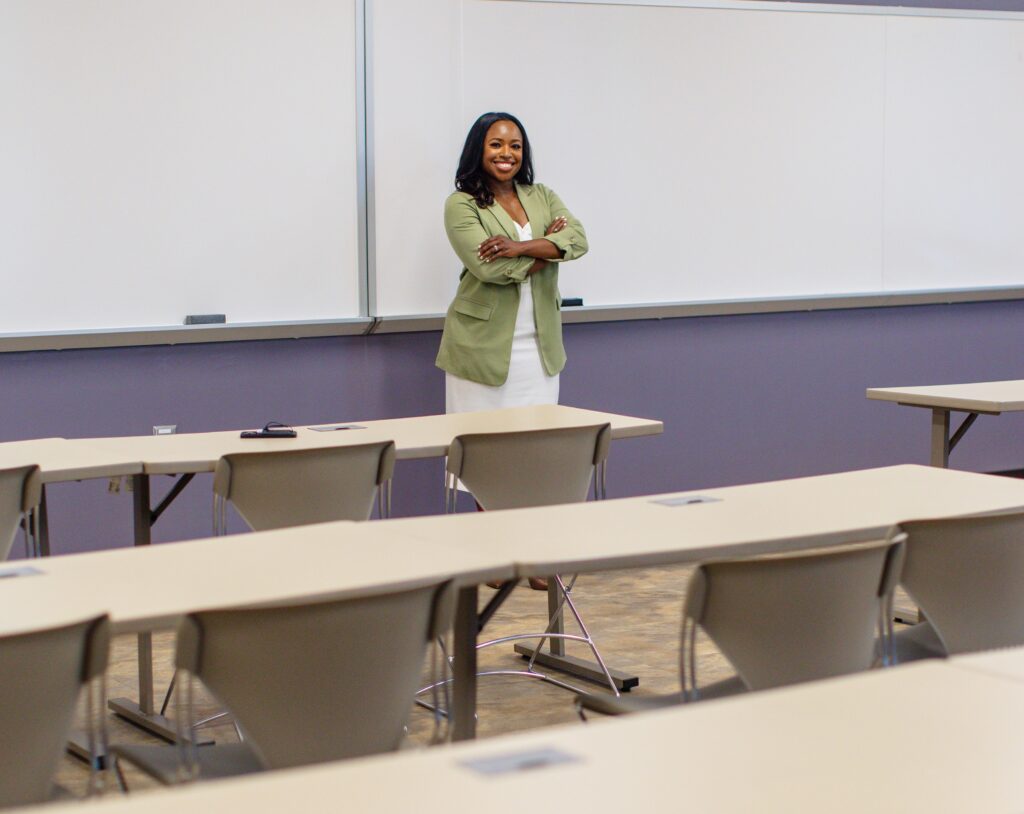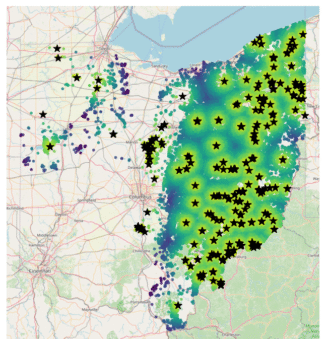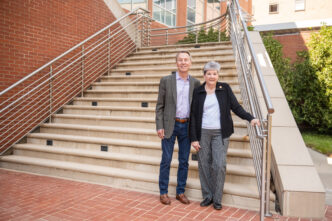Destinee Cooper has taught many chemistry classes, but when she steps to the lectern this fall she will be doing it for the first time as Dr. Cooper.
Cooper on Aug. 7 will become the first student from Clemson University’s Bridge to Doctorate Fellowship program to earn a Ph.D., and she’s staying to serve as a chemistry lecturer.
It is exactly the kind of outcome the program was designed to support. Even better, she is doing it at her hometown university, just down the road from where she grew up in Anderson.
“It really is a dream come true,” Cooper said. “When they called me back into the room after my dissertation defense and said, ‘Congratulations, Dr. Cooper,’ I cried. I’ve been working toward this since undergrad.”

The Bridge to Doctorate program provides financial support, mentorship and other resources to participating STEM students, who are considered scientific leaders with expertise in advanced materials research.
Cooper, who has a master’s in education from Stanford University, served more than seven years as a high school chemistry teacher before deciding to pursue her doctorate at Clemson.
The fit, she said, was instant.
“I loved that the Department of Engineering and Science Education let me combine my background in chemistry with my passion for teaching,” she said. “It wasn’t just a chemistry department or just an education department. I got to do both.”
That interdisciplinary experience shaped her research. Her dissertation focused on using culturally relevant pedagogy to keep students engaged in chemistry by connecting course content to their interests and identities.
“General chemistry is known as this tough, weed-out course,” she said. “But what if we stop focusing on what students lack and start focusing on the strengths they already bring? That’s the shift I want to make in the classroom.”
At Clemson, Cooper found a strong community in her research group, among the faculty and within the Bridge to Doctorate cohort.
“Being part of a collaborative team meant a lot,” she said. “And I want to mentor students the way my mentors supported me.”
Among those mentors were her advisor, Matt Voigt, and committee members Cindy Lee, Kelly Lazar and Shanita Anderson.
This fall, Cooper will step into the lecture hall as a full-time faculty member, teaching general chemistry to first-year STEM majors.
“We share ideas, we talk about learning goals, we design assessments together,” she said. “It’s the kind of collaborative culture I want to be part of.”
Outside of work, she credits her family for their constant support. They include: her husband, Aarin; their 4-year-old son, A.J.; her father, Kerwin Johnson; and mother, Linda Johnson, a longtime educator who now teaches high school in Hart County, Georgia.
Melissa Smith, chair of the Department of Engineering and Science Education and associate dean for graduate studies in the College of Engineering, Computing and Applied Sciences, said Cooper exemplifies the kind of scholar and educator Clemson hopes to cultivate through its programs.
“Dr. Cooper’s achievement reflects not only her talent and perseverance, but also the power of community, mentorship and opportunity to transform lives and institutions alike,” Smith said. “I offer her my most heartfelt congratulations.”







